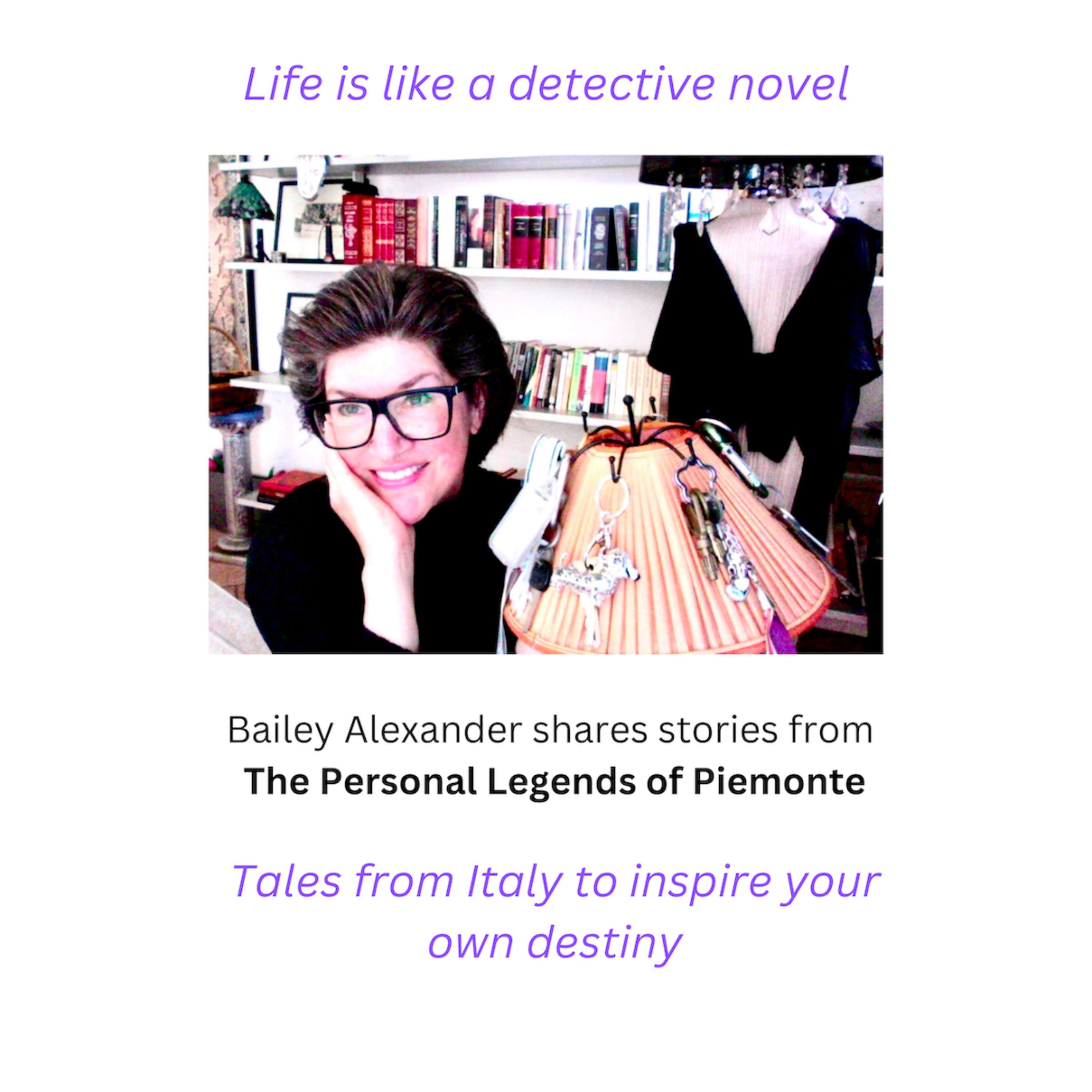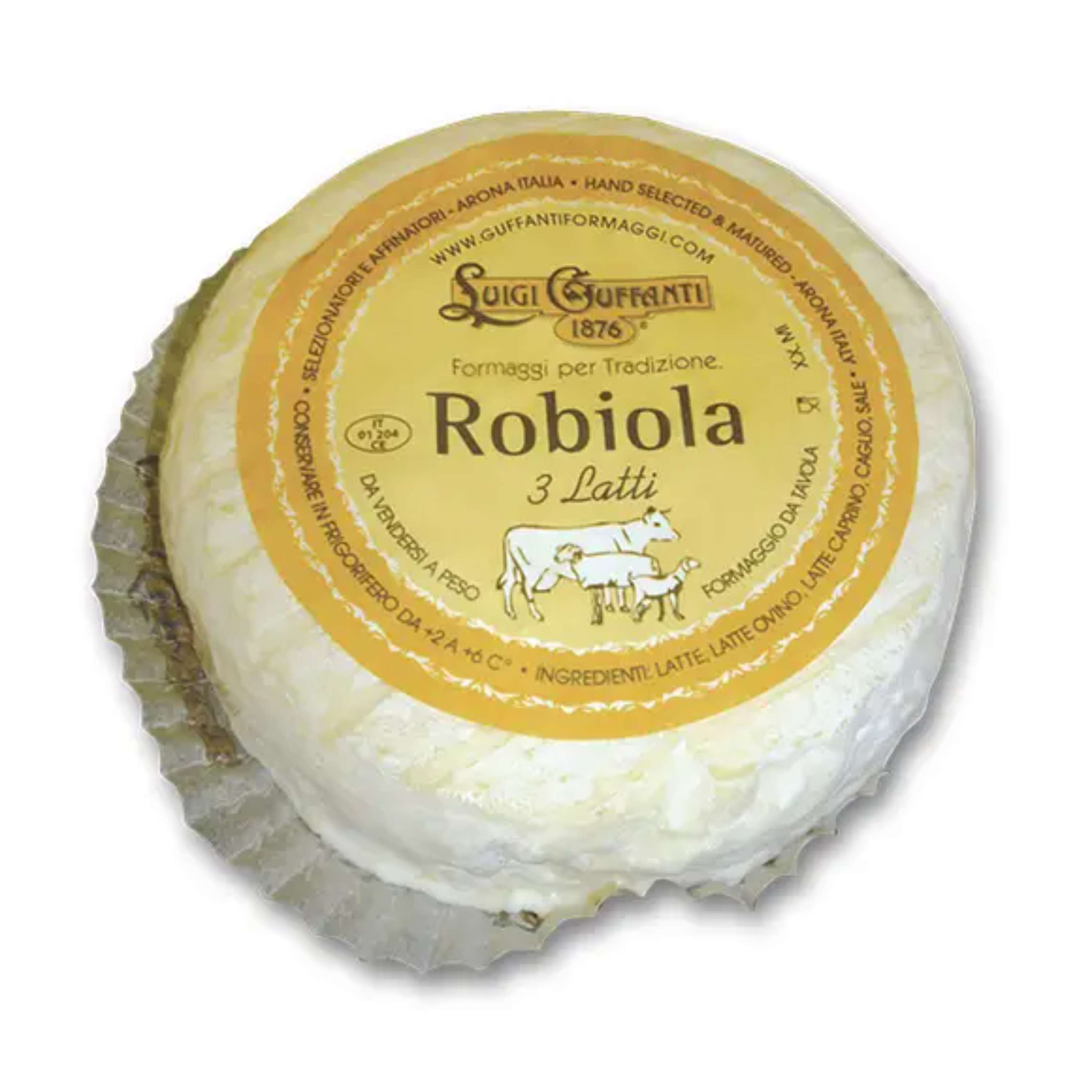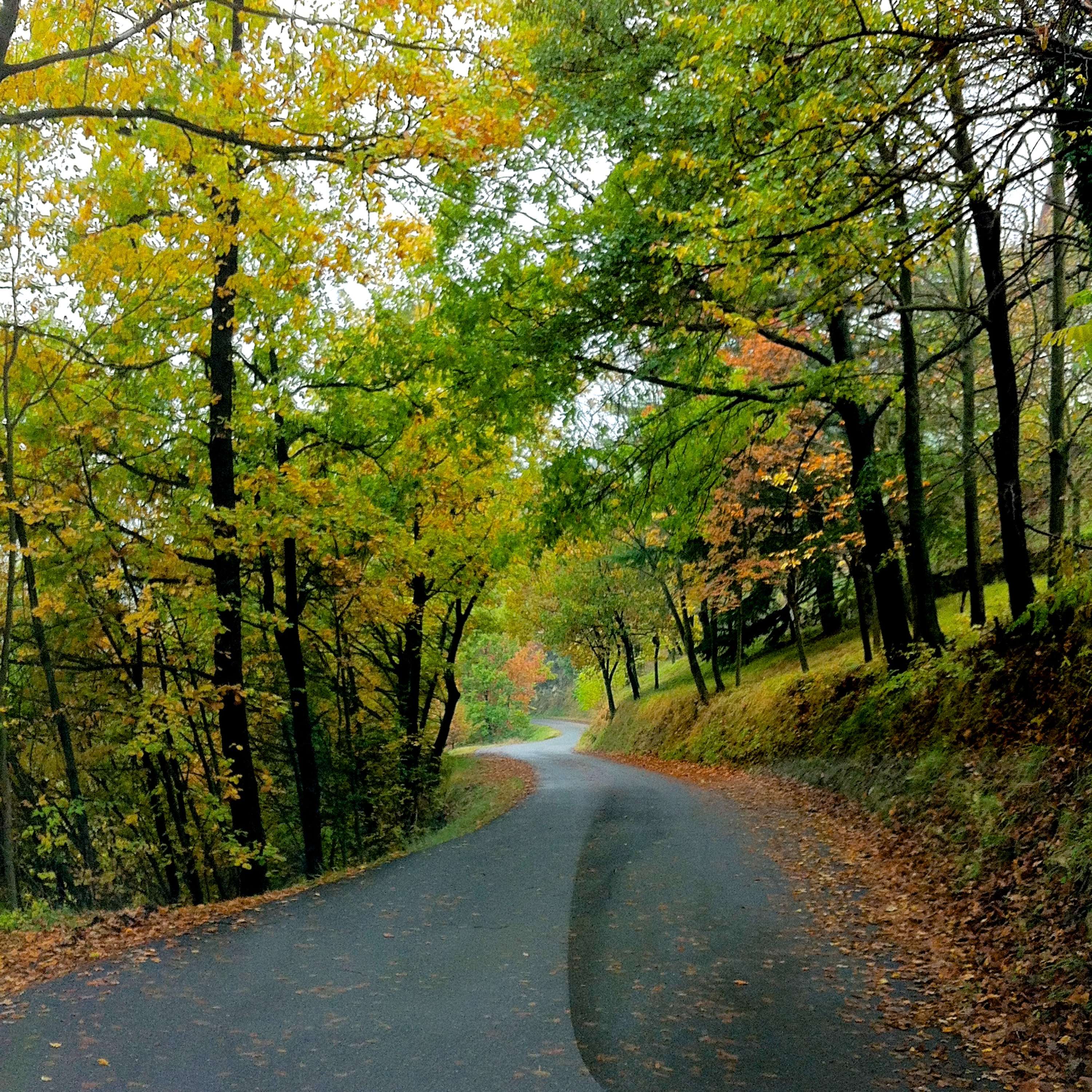Episode Transcript
[00:00:00] Speaker A: Hello and buon giorno. My name is Bailey Alexander and welcome to this month long series about how you too can fulfill your own destiny. In my latest book called Personal Legends of Piemonte, I interviewed 12 Italians who fulfilled their own in their own backyard, embracing the treasure beneath their feet and the world around them. While I had to travel a great distance to find my bliss, these people we call the Piemontese didn't have to move a mile. Life is like a detective novel and that's why this book is worth a read. It's not a fairy tale, although some of their lives may read like one. This is about their daily reality, their personal motivations, and how they figured out how to make their world work for them. The human mind is driven to solve mysteries, to uncover the truth, as each of us becomes a sleuth, looking for clues and trying to figure this business out, find a purpose, making sure we're on the right course.
In Personal Legends of Piemonte, we enter the lives of 12 northern Italians who live in a region you might not know of. You may never have heard of it, called Piemonte, and it is enchanting. Nestled up against the French, Swiss and Italian Alps, tucked into the northwest corner of Italy. How did they fulfill their destiny? Well, you will discover precisely how when you read these interviews along with the stories I've wrapped around them, showcasing their daily lives, exposing their motivations, and most importantly, how they figured it out.
These Italians are so attached to their land, they make it appear magical. You will learn how they incorporate the past with the present, with central themes like work, family and tradition continuing to shape their lives. And there is a lot of campanilismo. This is the pride, the feelings and emotions that inspire them to make the land work for them and produce many of Italy's finest products.
Some say work is the passport to serenity for the Pimontese. They are tough and industrious, informed by the mountains, and they're also worth reading about. They care about quality over quantity, so this is probably why they produce the majority of Italy's finest products. But what about their personal lives? How do they fulfill their destiny? For seven years I lived in Piemonte and immersed myself in aspirations like becoming self sufficient and growing my own vegetable garden. Becoming attached to the land after living in so many cities, having grown up in Seattle, I thought the answer could only be found in one. And I continued to live in many, like London, Paris, Rome, Amsterdam, Bucharest and Prague.
But I knew the answers lay elsewhere. So I moved to Piemonte, to the countryside and found myself living in the middle of nowhere. I finished my first book, called A European How a Boxer's Daughter Found Grace, which a lot of reviewers said read like a detective novel. And I became self sufficient. I learned how to listen to the trees, or at least try. But what about these people? I found something was missing. As the master said, you must write what you see. Well, I said, what I see does not move me. So the master said, you must change what you see. So I did. I looked up from my garden and I started interviewing my neighbors and the people around me. I was asked to teach six children English in the small school in a tiny town called Loizola, where I lived. I met their parents and they introduced me to other people. I became immersed in their culture, even though I hadn't grown up there. In this series I will be sharing the experience of spending seven years in Piemonte, which became like a pilgrimage, not necessarily one in search of penance or a blessing. But many lessons were learned, and there were a lot of characters in this tiny town with only 300 residents, like the enforcer for Hell's Angels, for all of Italy, there were a few Russian Orthodox Christians and me. Loazolo also boasts the smallest dock in all of Italy, a label that ensures quality of their wine. Soon I would find out how magical the oh so small town of Loetzolo was. A friend, a local named Emmy, kept asking me how I ended up in Loet Solo. After a while I too became curious, and eventually the answer became known. So I began my interviews, 12 in total, including wine and cheese makers, a famous chef, a bar owner, two herbalists, a teacher, a bureaucrat, and a mechanic named Luigi. It is Italy, after all. I asked them similar questions, and the answers were diverse, allowing the essence of their culture to find its way to you, the reader. I asked about the EU and politics in general, and the answers may surprise, and many will entertain you. But first we must set out on the journey, which is often explained in storyteller fashion, through the hero's journey. Why? Because each of us is the hero of our own story. And in order to listen to the call to adventure, it is most helpful to have a mentor.
Sure, a guide is fine, but a mentor is better, like a lighthouse, because our lives often feel like a detective novel as we uncover clues about ourselves by understanding other people's lives. But before we can go through the trials and tribulations we all face, we need to find our mentor to be forewarned, to be prepared for what is in store in this life that can feel like such a mystery. I am grateful to the legends who you will meet along the way. Like Madeleina. Without her, I wouldn't have changed course and then met Anna, who remains the gift that keeps on giving. She calls her herbs superheroes. Her nature hikes are a peak experience.
Enrica taught me the art of listening, and Luigi let me know how much fun work could be. Rosalinda reminded me of what I thought I'd lost long ago. Perseverance. Fabrizio celebrates the value of a small town in ways I'd never thought of before. And Chef Piera inspired to simply let life unfold.
Daniela knows that wine is love, and Emmy became a fine friend indeed. Alberto inspired me to let go of irrational fears. And Massey and Chiara provided the idea that happiness is a choice. They also taught me to never underestimate Italy. Paolo not only let the little baby birds free, he may have freed me, inviting me to take the elixir to my next home and share it with the world.
I cannot wait to introduce you to the Piemontese. So, hey, let's share a section of chapter one. It's called the Mentor from Limone in my book, the Personal Legends of Piemonte.
[00:06:44] Speaker B: Once upon a time, there was a baker named Francesco Caballo who lived in a town called Limone. He wanted to get married and start a family, but there was no one available. Then a friend told Francesco about a nice young woman named Elena. Unfortunately, several towns sat in between the two young Piemontese. Transportation was limited in the mountains and carriages were far too expensive. Francesco worked long hours. They began to exchange letters and eventually agreed to get married. Elena had to climb over a large mountain with everything she owned on her back. This took time and hard work, but she was strong and determined. She was Piemontese when she arrived. Elena and Francesco got along just fine and proceeded to have five children. Their first child was named Giuseppe, and he was very sweet. Then Giacomo came along and he could be very stubborn, even for a Piemontese. Two girls followed, one named Rita, the next Mari, a most obliging child indeed. In time, the fifth and final Caballo arrived and they named him Franco. He married a woman named Carla, who was both kind and creative. After Francesco's children moved away from Limone, Franco kept his parents house and Carla traveled from Milan to his hometown often. Even though Carla was from Bergamo, she grew to love Limone as much as Franco did. When Francesco died, his son Giuseppe followed in his footsteps and became a baker in Limone. The rest of the Caballo clan relocated to cities like Milan, Paris and New York. But Rita was the first to leave. In fact, she ran away at the tender age of 14. They only taught boys back then, and she desperately wanted to go to school. She was in search of a mentor. Her mother found a tutor to help Rita with a few subjects, but she craved more and taught herself how to sew. Rita could create a pattern in her head, which was unusual, and she had a keen eye for detail. For these trades, Rita became noticed and found another mentor who helped take her talent to Milan. She and her friend Rosa opened a small store. However, they were too young to be taken seriously. While Rita and Rosa were on a museum tour in Sicily, Rita met a German named Ed. They corresponded for several years, married after seven and moved to New York, where Ed was sponsored by a milkman in New Jersey. The couple were young and struggled to make enough money to have a family. Rita spoke little English, but she was loaded with determination and knocked on one door after the next until someone finally gave her a job.
Within a year, Rita became the head seamstress for an ambitious young fashion designer named Arnold Scazi. To everyone's surprise except Rita, she found.
[00:09:31] Speaker A: Herself flying to Washington D.C. with SCSI.
[00:09:33] Speaker B: To hand deliver dresses to Mamie Eisenhower at the White House. Rita and Ed had three children and moved back to Europe. They worked hard so their kids would have more opportunities and they did and proceeded to live all over the world. Only their eldest, Francis, would choose to.
[00:09:49] Speaker A: Move back to Italy.
[00:09:51] Speaker B: He married an American who wanted to learn how to live an authentic life and become self sufficient. After living a periphetic life in Europe, they agreed to settle down in the countryside of Piemonte. By chance I happen to be the wife and my name is Bailey Alexander.
[00:10:07] Speaker A: And so the story goes and we begin to meet the 12 legends. So hey, please check out my content and short films and photos on BaileyAlexander.com and I am happy to announce I will be having a book signing on April 10th at the Almost Corner Bookshop in Rome. Would love to see you there if you live in Rome or find yourself traveling to the Eternal City this spring. And hey, the first half of the book is in English and the second is in Italian. So you can brush up on your Italian if Italy is on your bucket list. So hey, thanks so much for listening and until we meet again. Arrivederci.


